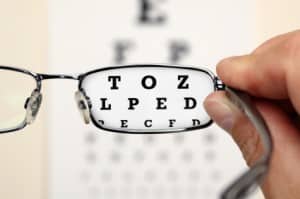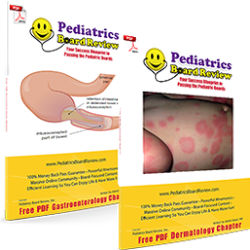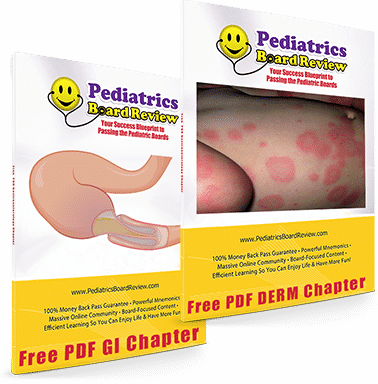Improving In-Training Exam Scores: Tips #1 & 2 – Start Early & Work Smart!
Can You Really Improve ITE Scores?
In the PBR article called “Can I Improve Pediatrics In-Training Exam Scores For Myself? Or For My Program?” I released survey results from recent test-takers who took their pediatric boards in October. Insufficient focus on early board preparation is a widespread problem in pediatric residency programs. While residents can hope that their program will do a good job of preparing them for the boards, they shouldn’t expect this unless there’s a proven track record within the institution for success on the boards.
Residency programs teach residents clinical medicine. The American Board of Pediatrics (ABP) tests pediatricians on board-relevant medicine. There is a significant difference. To help residents improve their chances of passing hte pediatric boards, PBR has a series of articles to boost in-training exam scores and boost the chances of passing the ABP initial certification exam.
Let’s start with 2 very important questions. Then, I'll give you 2 very simple recommendations that could set you on the right path starting immediately towards studying for the pediatric in-service exam and ultimately PASSING the pediatric boards!
DO IN-TRAINING EXAM SCORES REALLY CORRELATE WITH BOARD PASS RATES?
 According to a study published in the Journal of Pediatrics, the answer is YES! The study revealed that
According to a study published in the Journal of Pediatrics, the answer is YES! The study revealed that
the predictive power of in-training exams is extremely weak during the first year of residency, but then it does actually increase with each successive year as an indicator of your ability to one day pass the board certification exam (https://www.jpeds.com/article/S0022-3476(08)00205-9/abstract).
For residents, that means that in-training exam scores should no longer be seen as “just another test that gets me out of my rotation,” but instead as a true measure of their ability to pass the boards. Will possible changes in national policy, board certification may become an absolute requirement for state licensure in the near future.
 SO WHAT’S THE NUMBER ONE FACTOR THAT CORRELATES WITH HIGHER IN-TRAINING EXAM SCORES?
SO WHAT’S THE NUMBER ONE FACTOR THAT CORRELATES WITH HIGHER IN-TRAINING EXAM SCORES?
A study published in a journal of the American Academy of Pediatrics (AAP) found that the only factor found to significantly correlate with an increase in pediatric in-training exam scores was the number of admissions a resident took part in (https://hosppeds.aappublications.org/content/2/4/210.abstract).
The more admissions a resident did during residency, the higher the in-training exam scores were.
WHAT ARE THE 2 THINGS I WOULD’VE DONE DIFFERENTLY IN RESIDENCY?
It probably sounds like common sense, but given what I know now, I would “start early and work hard!” I would also add a focus on working “smart” so that I don’t significantly increase my overall work hours.

So, with hindsight being 20/20, if I could do (or had to do) residency training all over again, here are the are 2 things I would do differently to improve my in-training exam scores and thus increase my chances of passing the pediatric boards:
- Start Early: Starting intern year, I would read the PBR for 10 minutes everyday that I’m already at the hospital. I am HORRIBLE about reading at home, so I wouldn’t even attempt it. I’d read the PBR at work, and only at work. I truly believe that 10 minutes per workday is all it takes. 10 minutes before inpatient rounds (or while I’m on call) to read concise board-focused bullet points in the PBR about my most interesting cases would a long way towards helping me solidify my knowledgebase over three years of residency. For clinic rotations, I would probably write down 4-5 conditions I came across and then quickly review them the following morning for about 10 minutes before the clinic started again.
- Work Smart: You're already at work, so squeeze out 1 more admission during every call! Regardless of work-hour rules, we all feel tired and overworked in residency. Much of that is just human nature and centers around our desire to work less and get more. Unfortunately, when it comes to passing the American Board of Pediatrics (ABP) initial certification exam, there is no way to get around the fact that you’re going to have to work hard. If you can accept that, you can focus on how to avoid having a nightmare summer right after residency by spreading out the pain and preparing just a little bit every day while you’re IN residency. For me, the motivation would come from knowing that more admissions per residency results in better in-training exam scores and better chances of passing the pediatric boards.
Also, if you think about it, for both of these suggestions… you’re already at work. So work! It’s already time away from your family and TV, so make the most of it by reading your PBR and doing 1 extra admission per call. Then your days off can be enjoyed guilt-free with your family and friends. Plus, you’ll spend less time studying for the boards during the summer after residency. Lastly, in terms of taking an extra admission, you get the benefit towards increasing your in-training exam score, but you’ll also average less overnight transfers because of your inflated numbers. On non-call days, you’ll always get one less patient than your co-intern making the extra work you did on the call day a “wash.”
 Having failed the pediatric boards once, I can tell you how horrible the feeling is, and how much time it took away from my family and leisure time the following summer when I had to study for over 300 hours… again. Implement some good habits now and you’ll thank yourself later.
Having failed the pediatric boards once, I can tell you how horrible the feeling is, and how much time it took away from my family and leisure time the following summer when I had to study for over 300 hours… again. Implement some good habits now and you’ll thank yourself later.
Like most people, I value my time greatly and I also know that creating new habits is extremely difficult to do (especially when they require more time or energy). I do have suggestions on how you can implement new habits going forward, and I encourage you to continue reading the next article in this series: Improving In-Training Exam Scores: Tip #3 – Propinquity!
I’d love to hear how you think this information might influence your own practice. Please feel free to make a comment below. Also, if you’re interested in learning about GROUP DISCOUNTS FOR RESIDENTS please email me through the contact page.
FREE STRATEGIES



